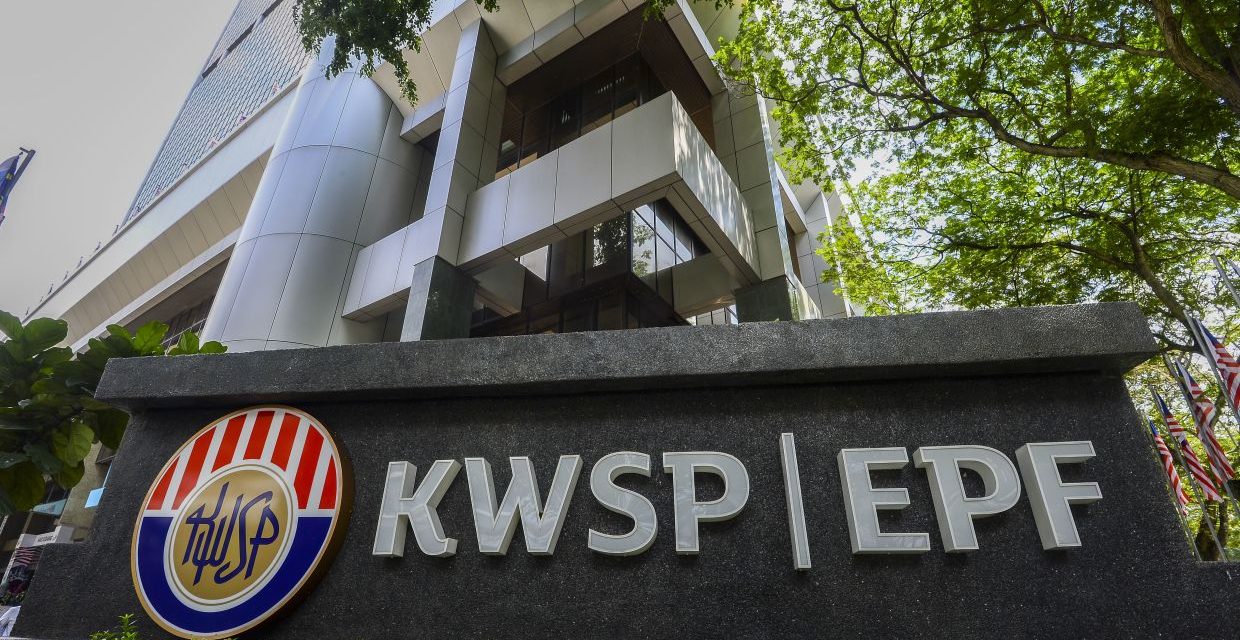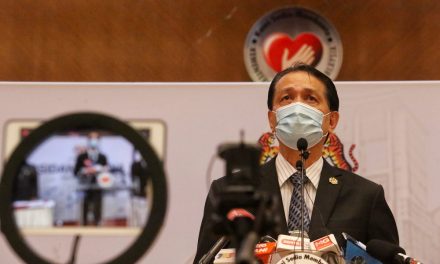EPF to launch i-Sayang to improve people’s livelihood
The Employees Provident Fund (EPF) will launch the i-Sayang facility in the first quarter of 2022, as part of its on-going effort to improve the livelihood of the people. Chairman Tan Sri Ahmad Badri Mohd Zahir said the facility will allow for the voluntary transfer of 2.0% EPF contributions from the husband’s to the wife’s account. Another facility the retirement fund is set to launch is i-Lindung, which allows the withdrawal from Account 2 to purchase life and critical illness insurance through the EPF platform. “Other initiatives we are exploring include the gradual approach towards mandating legal EPF coverage to non-agriculture informal sector workers. We will also be advocating our voluntary excess scheme where members can compel their employers to increase their EPF contribution to more than the 11 per cent statutory rate,” he said. (The Star)
The Dutch are world’s top non-native English speakers, Malaysia ranks 28th
The Dutch and Austrians are the most proficient in the language of Shakespeare, according to an analysis by international language training and educational travel organisation EF. In this latest ranking the Dutch take first place for best English level, while Austrians take second place, ahead of the Danes and Singapore. Germans come in 11th, with a poorer command of the language than the Belgians (6th), the Portuguese (7th) and Croatians (10th). In the ranking of countries and regions, Malaysia falls in the “high proficiency” bracket at 28th place on the list. On a global scale, English is hardly practiced in Iran (58th). A destination that comes in last in the ranking indicating the regions where the English language isn’t very commonly spoken. In fact, the Middle East is the area where it is most complicated to have a fluent conversation in English. (The Star)

RM19.75 billion worth of unsold houses in Malaysia
A total 30,290 units of completed houses with a value of RM19.75 billion were reported unsold in the third quarter of this year. Deputy Housing and Local Government Minister Datuk Seri Ismail Abdul Muttalib said data by the National Property Information Centre (NAPIC) revealed a 2.64% decrease in the number of unsold residential units in 3Q21 compared to 2Q21. The slight drop in unsold housing properties, he said, was attributed to numerous promotional efforts by developers including reducing prices or offering discounts to house buyers. “It is hoped that more developers will reduce the prices of houses to address the property overhang and restore the residential property market,” he said. Ismail said Kuala Lumpur, Penang, Selangor and Johor recorded the highest number of unsold houses. Among the factors that contributed to the property overhang were supplies that did not match the demands in localities, prices and household income mismatch and unattractive locations of housing projects, as well as house buying transactions through sub-sales, he said. (NST Online)
Homes, industries can opt for green power from Jan 1
Domestic and industrial electricity consumers in Peninsular Malaysia can opt for renewable energy (RE) sources generated from hydropower and solar plants starting from Jan 1. The energy and natural resources ministry is offering green and environmentally friendly electricity supply through the Green Electricity Tariff (GET) plan. Its minister, Takiyuddin Hassan, said GET was offering 4,500 gigawatt-hours (GWh) of electricity from RE sources yearly. He said the amount was equivalent to the capacity that could be supplied to 600,000 housing units for a period of one month in the peninsula. Those who subscribe to GET will receive a certificate confirming that the power supply is from an RE source through the Malaysia Renewable Energy Certificates (MRECs), which are registered with an international certification body. The GET certification will be offered in blocks – 100kWh per block for residential premises and 1,000kWh for non-residential premises. Domestic and commercial consumers may submit their applications for electricity supply under the GET programme from Dec 1. (FMT)
Many Malaysians may go bankrupt next year with end of govt financial aid packages
Many people in the country aged between 30 and 45 will go bankrupt next year when most of the government aid packages end, according to the Malaysian Association of Borrowers and Consumers Solution (4PM). Its president Rosland Mohd Arif said when loans, bank moratoriums and withdrawals from Employee Provident Fund (EPF) and the i-Sinar packages come to an end next month, many will resort to borrowing from loan sharks to survive. “I’m receiving bankruptcy calls everyday nationwide. If 30 calls per day, that’s 900 per month and 10,800 per year. That’s just me though I haven’t included my officers yet,” he said. Yesterday, EPF chairman Tan Sri Ahmad Badri Mohd Zahir cautioned that the majority of its members are now at risk of falling into old-age poverty as Covid-19 related withdrawals have caused insufficient savings to live out a dignified retirement life. 48% of EPF members below the age of 55 have critically low EPF savings. This is a 28% increase in members reaching critically low EPF savings from before the pandemic. (Malay Mail)
Virtual real estate plot sells for record $2.4 million
A patch of virtual real estate in the online world Decentraland sold for a record $2.4 million worth of cryptocurrency, the buyer crypto investor Tokens.com and Decentraland said on Tuesday. Decentraland is an online environment – also called a “metaverse” – where users can buy land, visit buildings, walk around and meet people as avatars. Decentraland is a specific type of metaverse that uses blockchain. Land and other items in Decentraland are sold in the form of non-fungible tokens (NFTs), a kind of crypto asset. Crypto enthusiasts buy land there as a speculative investment, using Decentraland’s cryptocurrency, MANA. A subsidiary of Tokens.com, called the Metaverse Group, bought a patch of real estate for 618,000 MANA on Monday, which was around $2,428,740 at the time. Decentraland said it was the most expensive purchase of a plot of virtual real estate on the platform. The land is in the “Fashion Street” area of Decentraland’s map and Tokens.com said it would be used to host digital fashion events and sell virtual clothing for avatars. (The Star)





